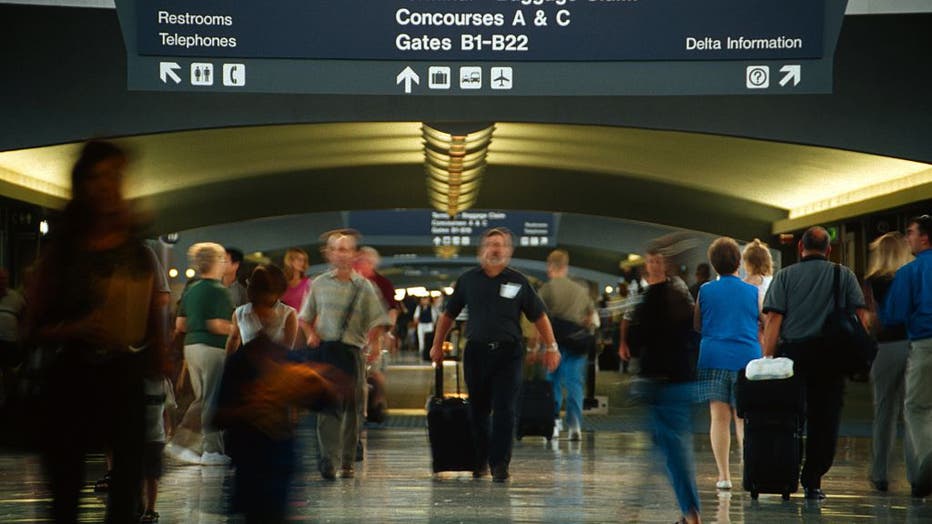NYC 'supercommuter' avoids high rent by traveling from Ohio home every week
NEW YORK - For Wall Street Journal reporter Chip Cutter, commuting from his Ohio apartment to his corporate office in New York City every week "has been worth it."
"Is there a way that I can keep my toe in both worlds? And so I said, is there any way that I could use everything that I have learned about credit card bonuses and airline frequent-flyer miles over the years and commute from living in Columbus, Ohio, keeping my apartment there, but then keeping my job that I love here at the Journal in New York?" Cutter told "Fox & Friends" co-host Steve Doocy on Wednesday.
"And so what I've been doing every week is just commuting back and forth."
Cutter admits he has become what’s known as a "supercommuter": an employee willing to go extra transportation miles to get to their in-person job. On commuting Mondays, he wakes up at 4:15 a.m. to catch a 6 a.m. flight before arriving at his Midtown Manhattan office in three hours minimum.
But for the reporter who moved back to his home state during the pandemic, Ohio’s cost of living is worth the trade-off.
According to Zillow data, the median rent cost of a one-bedroom apartment is $3,350 per month in New York City and $1,425 in Columbus.

Ohio, Cincinnati, Cincinnati Airport, Passengers In Terminal. (Photo by: Jeff Greenberg/Universal Images Group via Getty Images)
Additionally, the total annual expenditures for costs like groceries, housing, utilities and healthcare in New York is over $70,700, while Ohio’s expenditures are significantly lower at about $46,600, a recent analysis from GOBankingRates revealed.
"It has been worth it. It's been a bit of an adventure," he said. "That's been really special to be able to sort of see [family] not just on holidays, not just on weekends… it's been sort of a thrill to see whether I could do this or not. But of course, [it's] been a bit harder than I thought."
While Cutter is only in the office three out of five days per week, he originally stretched credit card rewards and frequent-flyer miles to stay at more luxurious hotels.
"You're here for the first meetings of the day, right? You just go about your day, you do your work, and then in the evening, I thought I might check in to this great hotel in lower Manhattan, it has this historic atrium," he explained. "Too many points. So quickly, I decided this isn't going to work."
He reportedly blew past his budget by 15% during this period and drained his airline miles balance.
"I started downgrading, staying at different hotels. I got to the point, sort of at the end of this process, where I'd be checking into a different hotel sometimes every single night in a week, property surfing, trying to find the lowest price I could," Cutter added.
For those American workers who may be interested in the supercommuter lifestyle, Cutter wants them to know the experience will be completely different from what they envision. His best tip is to know how to play the mileage and credit card bonus games, but generally, pick an airline and hotel loyalty program to stick with.

